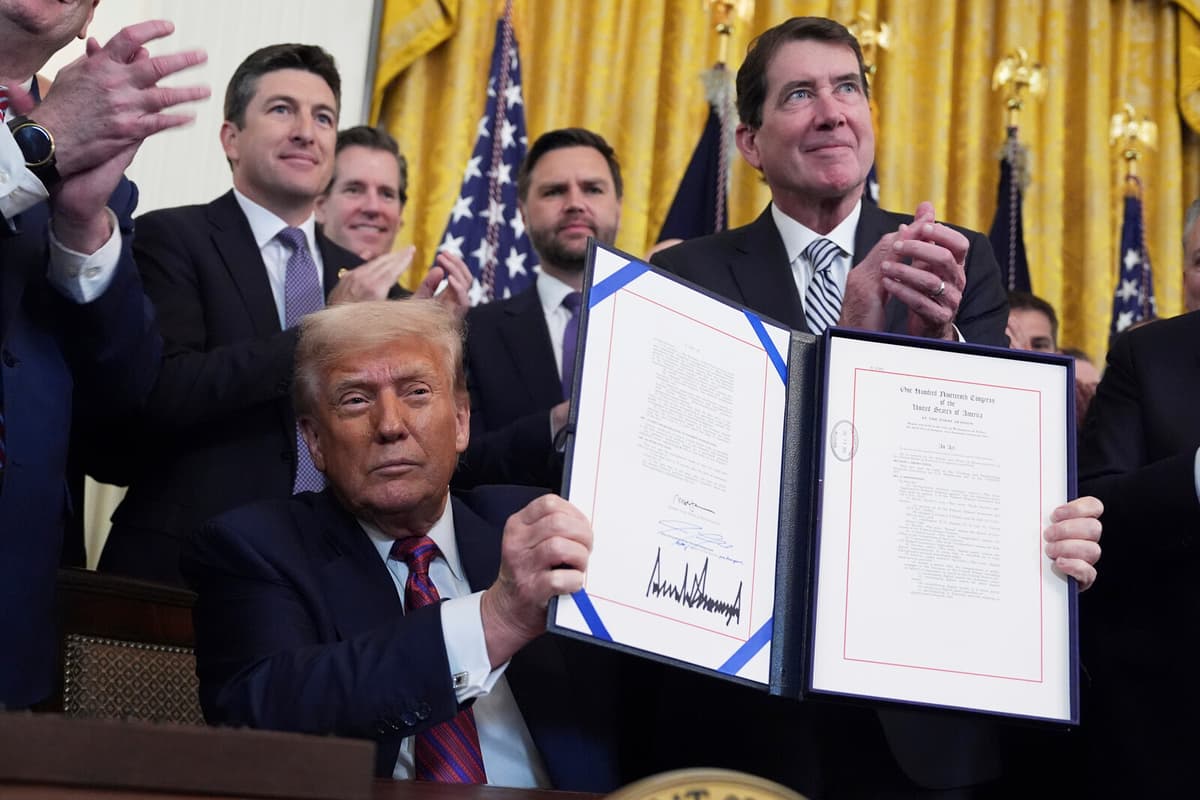The law, which goes by the name "Genius Act", entails certain obligations for those who offer so-called "stablecoins" – less volatile cryptocurrencies that usually follow the price of a regular currency, usually the dollar.
The law is seen as a milestone for the crypto industry and passed the congress's two chambers with a wide margin. The cryptocurrency bitcoin falls on the news, while ethereum rises. None of them are, however, stablecoins.
Trump, who was initially skeptical of cryptocurrencies, has several times promised to make the US the "world's crypto capital”.
The law prohibits congress members and their family members from making money on stablecoins.
That ban, however, does not include the president and his family – who have launched their own currencies and have a significant share in the criticized crypto project World Liberty Financial, which earlier this year launched a stablecoin.
Critics also point to several pitfalls, such as a lack of consumer safety and a concern that it invites future demands for rescue packages from the government when currencies collapse.
Two other legislative proposals on cryptocurrencies are being negotiated in congress right now.






